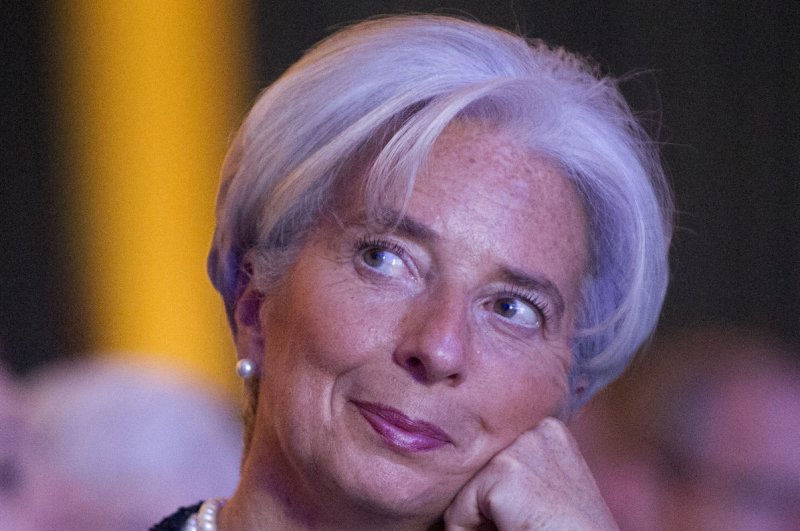Christine Lagarde, Managing Director, International Monetary Fund, warns sluggish economic growth is becoming commonplace, a statement that added to negative pressure building on crude oil prices. File photo by Ron Sachs/Pool/UPI |
License Photo
NEW YORK, April 5 (UPI) -- Crude oil prices moved lower for a second straight day as the International Monetary Fund gauged the prospects of "mediocre" economy momentum.
The IMF warned Chinese growth patterns may have a lingering ripple effect on the global economy. Chinese slowdown last year dragged on broader economic momentum and 2016 started with a hiccup following steep declines in the benchmark Shanghai Composite Index.
Speaking in Germany, IMF Managing Director Christine Lagarde said the global economy was moving forward and there were no signs of imminent crisis.
"The not-so-good news is that the recovery remains too slow, too fragile, and risks to its durability are increasing," she said.
Crude oil prices have been pressured by oversupplies in a market characterized by soft demand. The price for Brent crude oil was down 0.13 percent from the previous close to trade at $37.64 per barrel in early trading Tuesday in New York. West Texas Intermediate, the U.S. benchmark price for crude oil, moved lower by 0.47 percent to $35.53 per barrel
WTI started 2016 at around $36.50 per barrel, moving twice below the $30 per barrel mark early this year.
Crude oil prices started moving lower last week as doubts emerged over the prospects that major producers, including Russia and Saudi Arabia, would hold output at January levels in an effort to stabilize the market. Saudi officials last week said they'd cooperate provided others followed suit. Iran, for its part, said it would play a role once it regained market leverage lost as a result of economic sanctions.
Lagarde said the persistent weakness may not be readily apparent because slow growth has been persistent to the point that it seems normal.
"This persistent low growth can be self-reinforcing through negative effects on potential output that can be hard to reverse," she said. "The risk of becoming trapped in what I have called a 'new mediocre' has increased."















